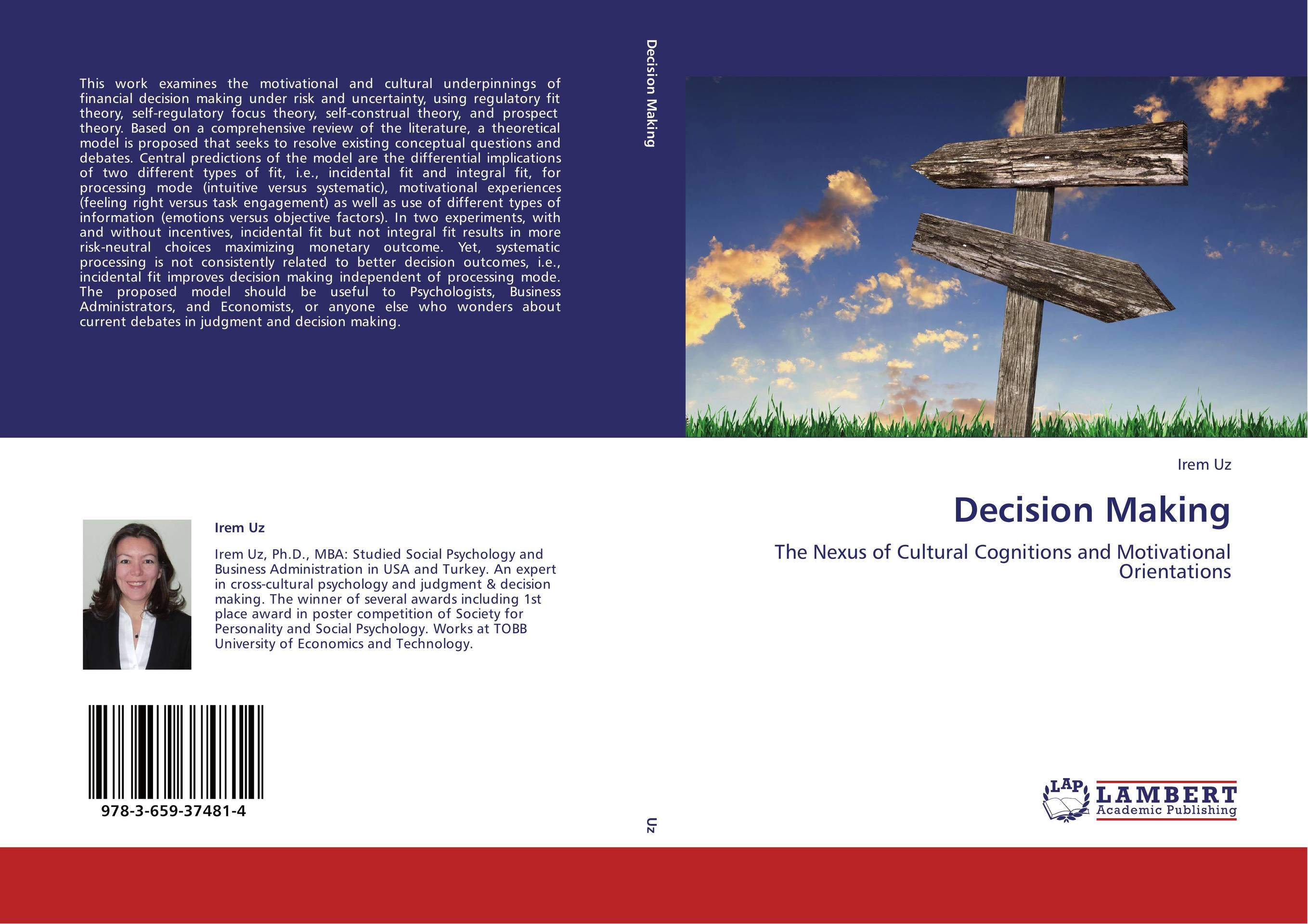| Поиск по каталогу |
|
(строгое соответствие)
|
- Профессиональная
- Научно-популярная
- Художественная
- Публицистика
- Детская
- Искусство
- Хобби, семья, дом
- Спорт
- Путеводители
- Блокноты, тетради, открытки
Decision Making. The Nexus of Cultural Cognitions and Motivational Orientations

В наличии
| Местонахождение: Алматы | Состояние экземпляра: новый |

Бумажная
версия
версия
Автор: Irem Uz
ISBN: 9783659374814
Год издания: 2013
Формат книги: 60×90/16 (145×215 мм)
Количество страниц: 260
Издательство: LAP LAMBERT Academic Publishing
Цена: 50580 тг
Положить в корзину
| Способы доставки в город Алматы * комплектация (срок до отгрузки) не более 2 рабочих дней |
| Самовывоз из города Алматы (пункты самовывоза партнёра CDEK) |
| Курьерская доставка CDEK из города Москва |
| Доставка Почтой России из города Москва |
Аннотация: This work examines the motivational and cultural underpinnings of financial decision making under risk and uncertainty, using regulatory fit theory, self-regulatory focus theory, self-construal theory, and prospect theory. Based on a comprehensive review of the literature, a theoretical model is proposed that seeks to resolve existing conceptual questions and debates. Central predictions of the model are the differential implications of two different types of fit, i.e., incidental fit and integral fit, for processing mode (intuitive versus systematic), motivational experiences (feeling right versus task engagement) as well as use of different types of information (emotions versus objective factors). In two experiments, with and without incentives, incidental fit but not integral fit results in more risk-neutral choices maximizing monetary outcome. Yet, systematic processing is not consistently related to better decision outcomes, i.e., incidental fit improves decision making independent of processing mode. The proposed model should be useful to Psychologists, Business Administrators, and Economists, or anyone else who wonders about current debates in judgment and decision making.
Ключевые слова: risk-taking, cognitive processes, prospect theory, Utility Functions, Loss-aversion, self-regulatory focus, financial decisions, independent and interdependent self-construal, criteria for decision-making under risk and uncertainty, social perception & cognition



